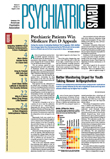Q. A former patient of mine, whom I last treated about seven years ago, has recently sued her employer. She is alleging that her depression has been caused by her situation at work. A few months ago, both her attorney and the attorney for her employer contacted me and requested a copy of her records; she did sign a release authorization. I looked in the attic where I store old patients' records but could not locate her record. I explained this to the attorneys. In my state, I am required to keep records for only six years after treatment ends, so I am not worried about not having the record, but now the employer's attorney has sent me a subpoena for a deposition. I don't think that I can support any of the statements I would make in a deposition without the record. Besides, I don't remember details of the treatment I provided (for example, dates or medications). Since I no longer have the patient record, I cannot be expected to give testimony in a deposition, correct?
A. you can still be compelled or ordered to give testimony in a deposition or a trial regarding your treatment of a patient even without a record. Producing a patient record and providing testimony are separate acts that are not dependent on one another. Involvement in litigation, either as a defendant or as a witness (as in this case), cannot be avoided simply because the relevant record no longer exists or cannot be located. This is one major reason behind the risk management advice of retaining patient records indefinitely.
Q. Many popular television shows are set in a courtroom, and I often wonder if they truly show how a medical malpractice trial proceeds. How can I get more information about what really happens in a malpractice trial and, more importantly, how I can stay out of the courtroom?
A. Professional Risk Management Services is presenting a unique psychiatric risk management experience on September 9 in Providence, R.I., titled “Berber v. Mellott, M.D.: Lessons From a Medical Malpractice Mock Trial.” This psychiatric-specific mock trial will illustrate the relationship between the legal system, professional malpractice, and risk management. Seminar attendees will participate as the jury in a mock courtroom—complete with attorneys, experts, and judge. This will help psychiatrists understand the litigation process and the courtroom experience, as well as provide attendees with risk management techniques to help them stay out of the courtroom.
Participants in the Psychiatrists' Program can attend this seminar at no charge and are eligible to receive a 5 percent discount on their Program insurance premium. Non-Program participants can attend for $299, which includes all seminar materials, continental breakfast, breaks, and lunch. PRMS also has several registration discounts available including an online registration discount and reduced rates for groups, early career psychiatrists, and members-in-training. More information is available online at<www.prms.com> or by phone at (800) 245-3333, ext. 347.
Q. I just received a Notice of Determination from Legion Insurance Co. What is this document? Do I need to do anything with it? The form states that I am supposed to report claims to the reinsurer from now on. Is this accurate?
A. The document you received is in response to the Proof of Claim form you may have filed with Legion Insurance Co. in Liquidation (LICL) in spring 2005. On July 19, 2005, the Pennsylvania Supreme Court affirmed a lower-court ruling granting the direct access to reinsurance on behalf of Program participants who were covered by Legion policies. While there are still some questions about the full impact of the court rulings, the reinsurer for Legion's Program claims (Transatlantic Reinsurance Co.) has begun providing direct access to funding for the Program claims.
More information on this ruling can be found at<www.psychpurchasing.com>. An article about this matter appeared in the December 15, 2005, issue of Psychiatric News. If you have an open claim or need to report a claim, please note that all claims continue to be handled by PRMS.
This column is provided by PRMS, manager of the Psychiatrists' Program, for the benefit of APA members. More information about the Program is available by visiting its Web site at<www.psychprogram.com>; calling (800) 245-3333, ext. 389; or sending an e-mail to [email protected].▪
